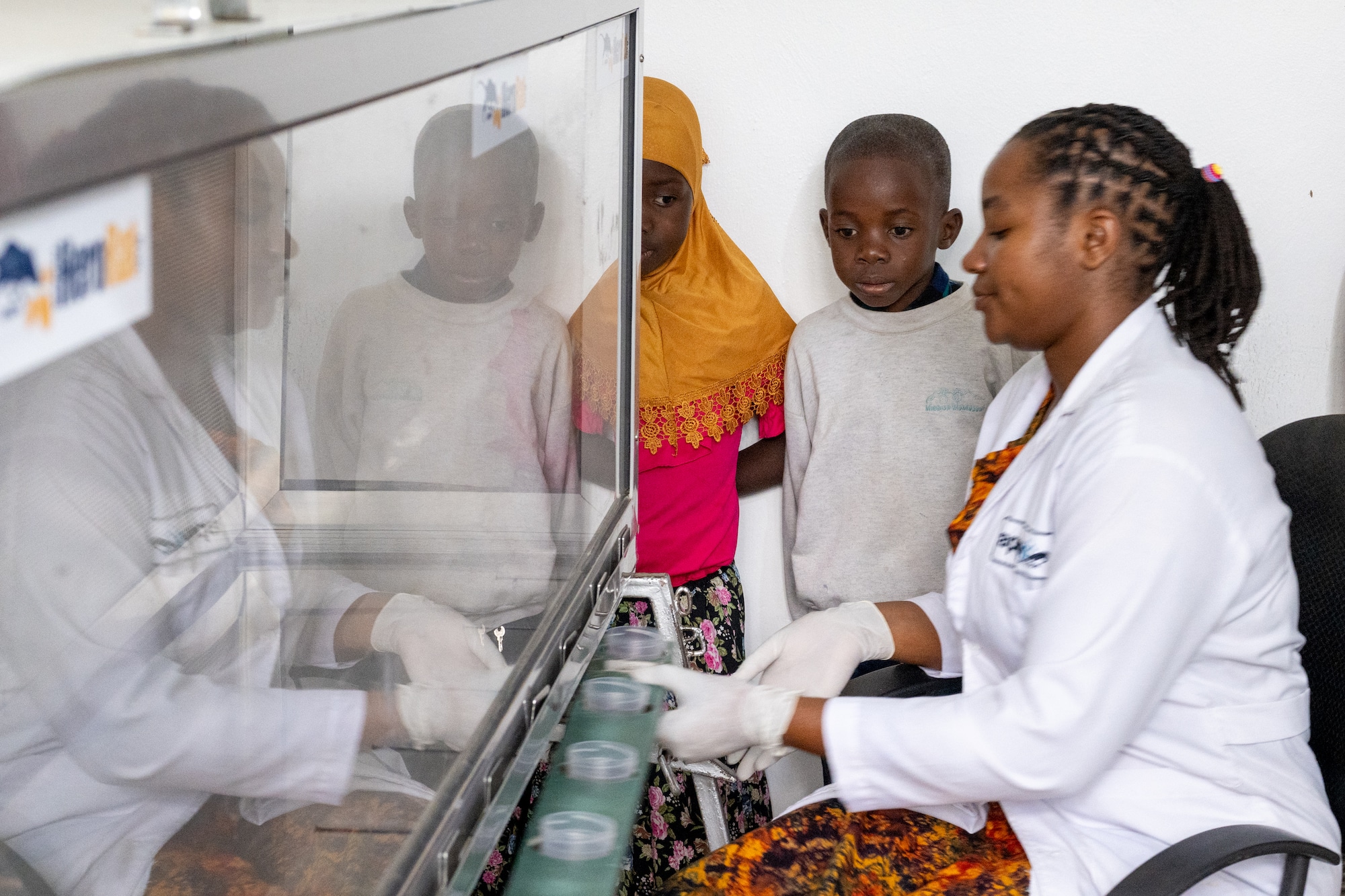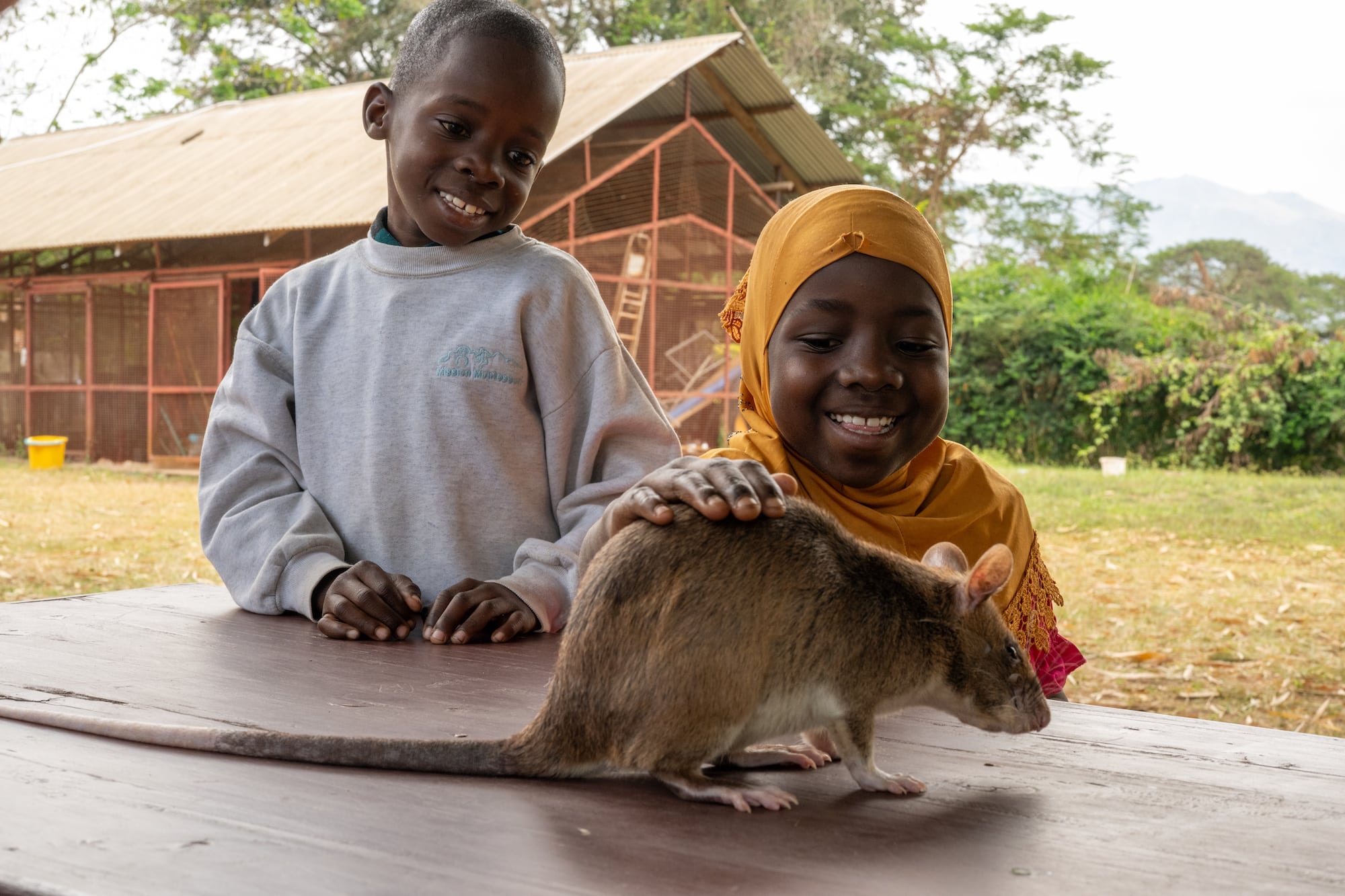In Morogoro, Tanzania eight-year-old twins Zainab and Omary began coughing and running fevers at night. Their grandmother brought them to Sabasaba Hospital, where initial tests showed no tuberculosis (TB). Because a close family member had recently died of TB, the clinic sent the twins’ sputum for a second screening through APOPO’s TB detection program at Sokoine University of Agriculture. APOPO’s HeroRATs flagged both samples for further analysis, APOPO lab confirmatory tests came back positive, and the clinic was notified, treatment began immediately.
With daily medication and regular follow-up from health staff, both children completed six months of treatment and were declared recovered. Today they are healthy, back in primary school, and thriving.
Read the twins’ story in their grandmother’s words.
In their grandmother’s words

“My name is Salma. I live with my eldest daughter, my eldest grandson, and the twins. Life is difficult. I used to farm, but now my legs are painful and weak, so I cannot work. Some days the children have money for food at school, and other days they go without. Even so, the twins are calm, they study after school, and they look out for each other.
TB touched our family before. My son, born in 1978, did heavy work loading sand and stones. He fell ill and tested positive at Sabasaba Hospital. He was sent to Kibong’oto Hospital in Arusha for advanced care, and he passed away there. When he became sick, he moved into my home so I and our neighbors could care for him. At the hospital we learned the symptoms of TB and how to protect ourselves. We were told not to share eating utensils and to wear masks. I was also tested, and no tuberculosis was found in me.
When the twins later began coughing and had fevers at night, I took them straight to the clinic. The first results said they did not have TB, but I was confused because their symptoms looked like their late uncle’s. It took time to understand that the twins had been infected by him. About three months after he passed away, they began to show signs. Because of our family history, the clinic advised sending their samples to APOPO for rechecking.
Then the phone rang. We were told that the sputum samples had been tested by APOPO’s HeroRATs, and both children were positive for TB. Hearing that the rats had found the disease meant treatment could begin right away. That call felt like light after darkness. I had no money for private tests or another hospital, but APOPO’s program found the disease early and made sure the children were enrolled in care free of charge.
The hospital arranged treatment immediately. The twins were given medicine every day for six months, and I made sure they never missed a dose. After two or three months I began to see great improvements. Health workers from the hospital and APOPO followed up often to check on their progress. After they finished the medication, the children were examined again and the results showed the TB had completely cleared.

Today they eat well, play, and go to primary school like other children. Omary enjoys mathematics. There are 301 pupils in his class, and in the last report he ranked number 30. Zainab loves school and wants to see the HeroRATs again. We visited APOPO so we could see the rats at work. I was overjoyed to learn that rats could help save human lives. I have grown to love them for the work they do. They screen many samples in a short time, and I am grateful to the specialists and to those rats.
If someone around me has a cough that does not go away, I tell them to get tested immediately. If the first test says there is no TB but the cough continues, I advise them to return and ask for the sample to be checked again, like the twins’ samples were. Because of what we went through, I know TB is curable if it is found early and treated properly. I worry about stigma for the children, but they completed treatment and are healthy now.

Before my grandchildren fell ill, I had never heard about APOPO or their rats. Now I tell people about them everywhere I go, at Mosque, in the neighborhood, and at the clinic, so others understand how important testing is.”

